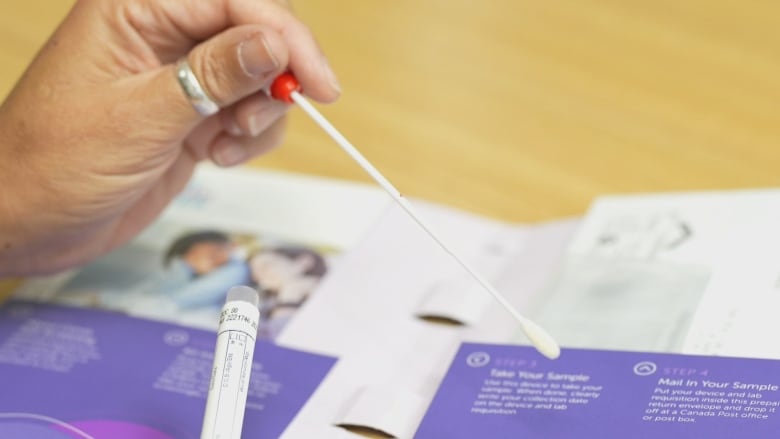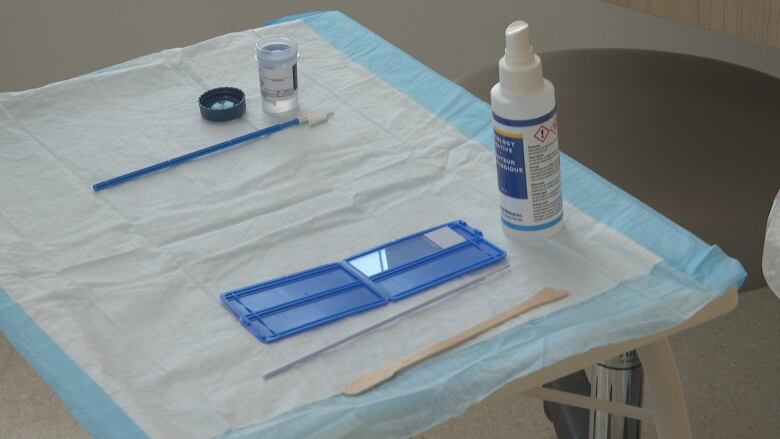Alberta piloting at-home HPV test in hopes of reducing cervical cancer
5,000 kits to be handed out to women in under-screened populations

The Alberta government is working to finalize a group of women for a pilot project involving at-home testing for the human papillomavirus(HPV), whichcauses cervical cancer.
The project, which began in April,aims to reduce the incidence and burden of cervical cancer.
It targets women who have difficulty accessing a health-care provider that would perform a collection in a clinic.
Alberta Health and Alberta Health Services (AHS) are leading the project, Charlotte Taillon, press secretary forHealthMinisterAdriana LaGrange, told CBC in a statement.
"If the pilot is successful, at-home HPV testing could be an option for women in addition to Pap tests," Taillon said.
AHS will distribute home testing kits to under-screened populations such as those in rural or remote communities, Indigenous communities, and new immigrants.
About 5,000 kits will be handed out to women from selected populations andlocations. Ifthe project is successful, Taillon said provincewide implementation could begin next year,starting in May.
Cervical cancer is one of several cancers caused by HPV. The disease, which develops slowly over time,is easily preventable and curable.
Currently, screening for cervical cancer is done through a Papsmear. AHS recommends women aged 25to 69 get the test done every three years.
The test is conducted by a doctor who sweeps up cell samples from the cervix to spot lesions caused by HPV. The results show early warning signs of changes that without treatment can develop into cancer.
HPV tests, recommended every five years for women, have gradually been replacing Pap smearsbecauseHPV tests have better ability to boost early detection.

Dr. Gina Ogilvie, a professor at the University of British Columbia, is Canada Research Chair in Global Control of HPV-Related Diseaseand Cancer.
Ogilvie is not involved in the Alberta pilot project but spoke to CBC's Edmonton AM about the value of testing for HPV.
"By using HPV instead of using a Pap smear, we're able to detect those precancerous lesions that we want to treat to prevent cancer," she said.
"We really value that because it means that if you test HPV-negative, we have tremendous confidence that there's nothing that we've missed."
Ogilvie said the at-home test is easy to do. The kit comes with a cotton swab which is used to sweep up cells from the cervix. The cell sample is then mailed to a central lab to be tested.
"What's great about it isit can actually be done anywhere," she said.
This isn't the first time Ogilvie is seeing a project like Alberta has started. In 2021, she led a similar pilot project in B.C.

Ogilviesaid women had the opportunity to take the test at a time convenient to them. The test removed barriers for those living in remote or rural areas. She said the test is a better option for women who may not be comfortable with pelvic examinations.
Ogilvie said across Canada about 65 to 70 per cent of women are up to date with their cervical cancer screening.
"We have a percentage who have never undergone it, and this (HPV) test allows those women who are particularly delayed to find another way to undergo screening," she said.












_(720p).jpg)


 OFFICIAL HD MUSIC VIDEO.jpg)
.jpg)



























































































